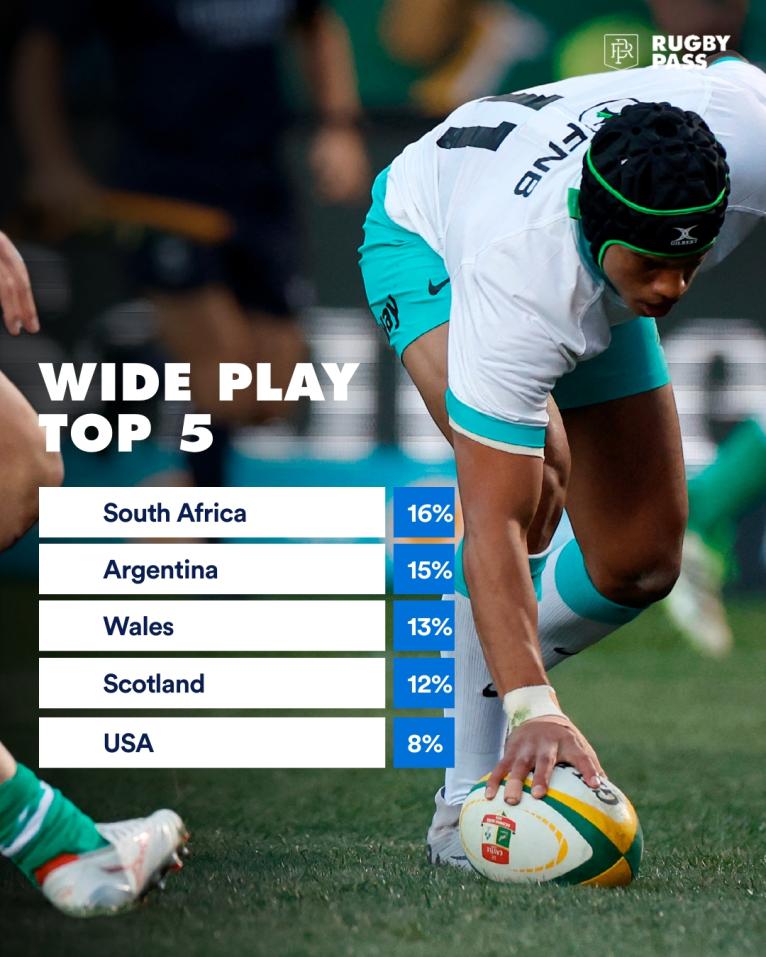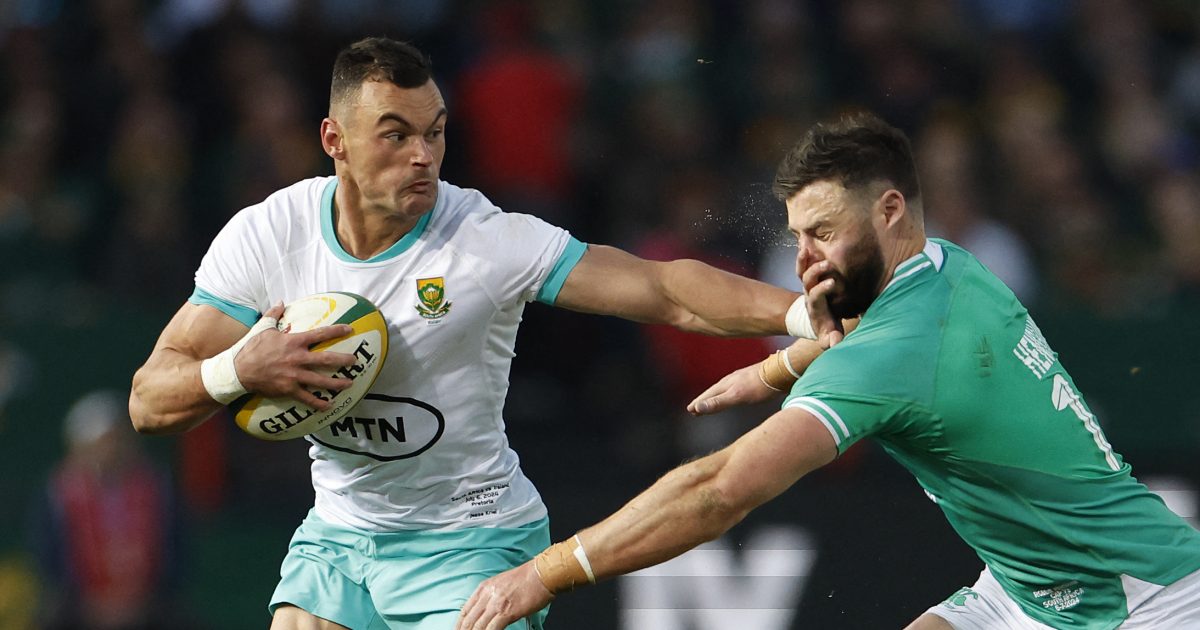Are the Springboks the new 'wide' boys of rugby?

One thing that is up for discussion in the next episode of Boks Office, available soon on RugbyPass TV, is how much width South Africa put on their game, especially in the first half of Saturday’s 27-20 win over Ireland.
A titanic arm wrestle of a match was expected between the world’s two best teams who have built their success on physicality, and whilst there was plenty of heavy duty collisions – the ground is still shaking after Siya Kolisi sat down Robbie Henshaw – the way the Springboks came out to play was evident from the moment that Kurt-Lee Arendse scorched down the left wing for an early try.
Thanks to our friends at Opta, we can reveal that the Springboks played touchline to touchline more than any other team involved in the eight major internationals in last Saturday’s action-packed schedule.

Whereas at one end of the scale England kept things exceptionally tight in their 15-16 defeat to the All Blacks in Dunedin, moving just 3% of their possession 20 metres or more away from the ruck, South Africa’s wide ball movement accounted for 16% of their attacking play.
Whilst Argentina and Wales were only just behind them in the stats, South Africa looked far more dangerous whenever they got the ball to the flanks.
This point was not lost on former Rugby World Cup winners and regular Boks Office studio guests, Jean de Villiers and Schalk Burger, who believe the approach under new attack coach, Tony Brown, is bringing out the best in players like midfield duo, Damian de Allende and Jesse Kriel.
“I would say we had complete dominance in the first half. If it wasn’t for Kwagga Smith’s two blunders, one off the kick off and one off a 22 drop out, they wouldn’t have had any entry into our half and that was down to us playing a little bit wider, in the 13 channel and wider,” says Burger.
“We were so effective in the first half because we got so much momentum in our first phase attack. It was the most prominent game Jesse Kriel has had in attack in a Springbok jumper in recent memory because of the way we played.”
Burger says how pleased he is to see a more free-spirited Springboks, pressing the ‘go wide’ button out of choice rather than only adopting that mentality when there is a free play from a knock-on or penalty advantage.
“That free play – that’s when we’re more likely to play it out the back. But now, we are accessing those areas off first phase or in general play, putting out the back. I think there were 170-odd passes against what you normally get in a game like that, which is 70.”
De Villers, meanwhile, praises fellow centre de Allende, for the way he expressed himself with ball in hand.
“I have said it for so long, I think Damian has such a good passing game but he never gets the opportunity to actually play that game because we use him so much as a battering ram. He could certainly show that a little bit more this weekend (vs Ireland in Durban); that one channel wider creates so much more space.”
Whilst the arrival of former All Blacks fly-half Tony Brown has ignited the Springboks’ attack, Burger believes the transition is also down to the laws around the maul which have made it easier to defend.
“We get so many lineouts in that area, on halfway, or just the other side of halfway, and our own ball we would normally revert to a maul.
“For a long, long time now it is so hard to get any reward from that (the maul) because the opposition has got time to swim around – the new way of stopping that maul.
“You can go forward five metres of whatever but, by the end of it, you use it once and you have got to play it, and it is so hard to generate anything from that. So I think the fact we didn’t maul was a big positive from the Boks.”
















